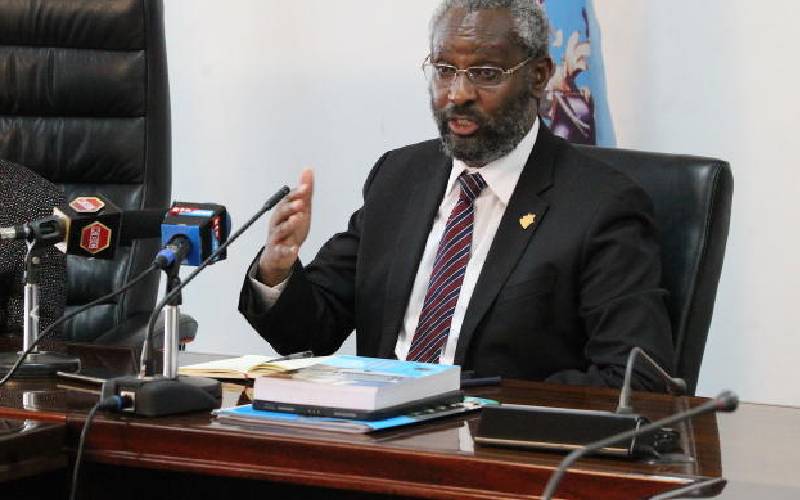×
The Standard e-Paper
Home To Bold Columnists

University of Nairobi Vice-Chancellor Prof Kiama Gitahi briefing journalists on the Institutional Reforms at the UON on July 9, 2021.[Jonah Onyango,Standard]
The push by universities to increase fees has hit a dead end after the government disowned any such plans.







